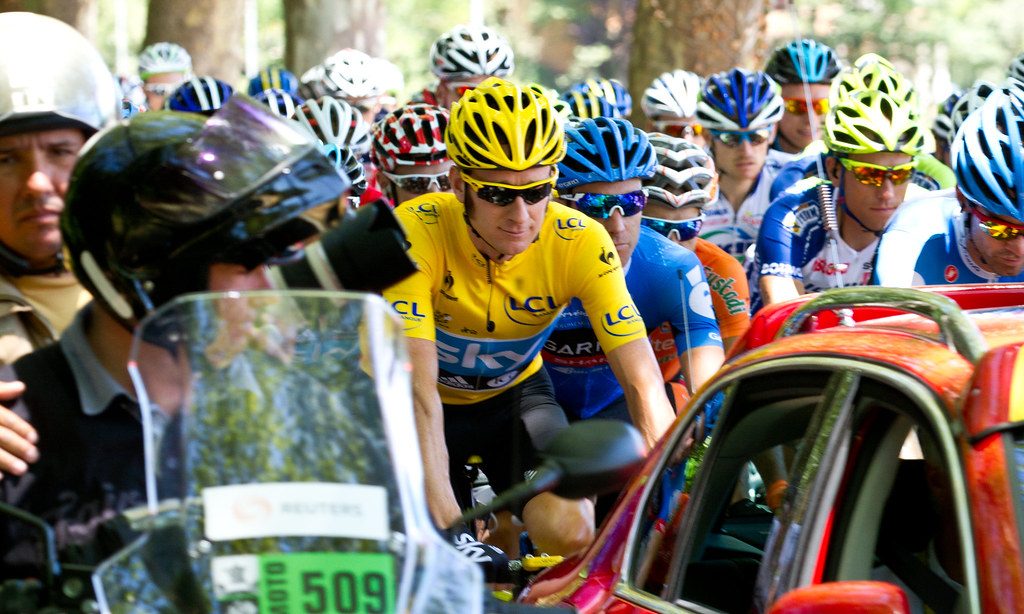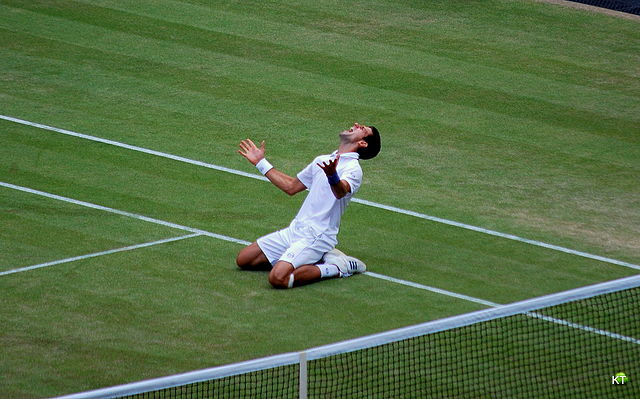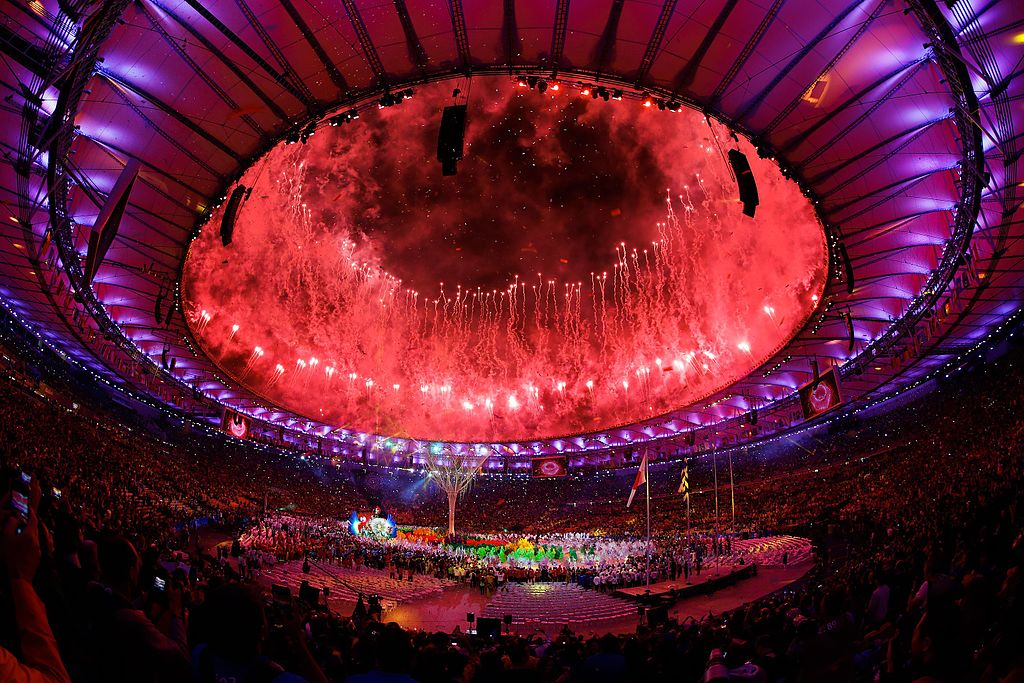The closing ceremony of the Rio 2016 Olympic Games in Maracana. Image courtesy of Fernando Frazao/Agência Brasil
Traveling to a major sporting event is more than just a show of support to your country or favourite athlete. It is an acquiescence to our deep-seated tribalistic urges; it is our way of honouring the supreme feats of athleticism of our fellow humans; it is a chance to become part of history. The passionate crowd, beautiful locales (most of the time, anyway) and magical atmosphere will all come together to create an experience that will stay with you for the rest of your life.
So what are the five must-see major sporting events on the planet that you simply cannot afford to miss?
5. Tour de France
Without doubt, Tour de France is the single most gruelling sporting event in the world. Cyclists travel over two thousand miles across France (as well as the Netherlands, Belgium and occasionally, other neighbouring countries) through the countryside, city streets and even suffocating ranges of the Pyrenees in barely three weeks. The stamina, endurance and mental power required to complete the race – never mind win it – is astonishing; cyclists regularly collapse at the end of every stage. Attempts at cheating go beyond simple drugs – cheaters literally get oxygen-rich blood transfusions between stages!
Established in 1903, the race draws over 12 million spectators along its circuitous route. Each spectator is estimated to travel an average of 130km over six hours to watch the pelotons of superhuman riders. In 2014, the race drew a worldwide television audience of 3.5 billion viewers from 188 nations over 22 days. It has to be said though – the decade-long blood doping scandal has greatly tarnished the reputation of the race and the sport.

4. Wimbledon
Wimbledon is steeped in rich tradition and history. It is the oldest, greatest and most prestigious tennis tournament in the world. The tournament has been held continuously at the iconic All England Club in the Wimbledon district in southwest London since its inception in 1877 – with the exception of two interruptions during WW1 and WW2.
The club actually has a variety of court types. However, the tournament only uses its grass courts – making it the only Grand Slam out of the four to do so. The club, which counts HRH Queen Elizabeth II as its patron, is also the originator of the modern game of lawn tennis, courtesy of its creator, Major Walter Clopton Wingfield.
For two weeks every summer, the entire district is invaded by an army of fashionable tourists, old-money and aristocratic families, the press corps, and hundreds of players seeking a shot at immortality – people travel from all over the world to witness that moment of immortality.

3. Super Bowl
In terms of off-game and pre-match spectacle, nothing can top the Super Bowl. Now entering its 53rd edition (scheduled for 2 February, 2020 in Miami Gardens, Florida), Super Bowl has transcended the sport and grown to become an intrinsic part of American culture. While the raw strength and tactics of the game itself is a sight to behold – the glitz, pageantry and music surrounding the event elevates it into another level completely.
The Super Bowl even creates a micro-economy of its own, from sponsorships to ad buys and merchandise sales. It draws an insanely high a hundred plus million TV viewership, almost three times more than anything else ever shown on TV.
2. The Olympic Games
The Olympic Games is the foremost athletic competition in the world. The event draws the participation of thousands of athletes from every country, autonomous regions and territories. To many athletes, it is the focal point of their entire lives – the culmination of the training and sacrifices they’ve had to make in pursuit of the Olympic gold.
The concept of the Olympics actually originated from ancient Greece, where athletes from city-states compete with one another to gain bragging rights and favour of the almighty Zeus.
The quadrennial event was last held in Rio de Janeiro, Brazil in 2016, and the next edition will be in Tokyo, Japan in 2020. To get an idea of the sheer size of the event, the Rio Olympics welcomed more than 11,000 athletes from 205 countries into the Olympic Village; 125,000 hours’ worth of footage, over 14 years’ worth, was broadcasted in 220 countries to a combined audience of 3.6 billion; $6.2 billion was injected into the Brazilian’s economy. No other sporting event comes even remotely close to these staggering numbers.
1. FIFA World Cup
Every four years, 32 countries compete to be crowned as the champion of the planet’s most popular sport – football. An explosion of flags, painted faces and singing will envelop the landscape of the host cities during the month-long competition. Rivalries are forgotten (largely), friendships are made, tears are shed – such is the power of the World Cup.
Emotionally, the World Cup has no peers in the sporting world – the joy, exultation, sobbing, anger and a myriad of other emotions are par for the course. The sight of grown men sobbing uncontrollably in the streets following host Brazil’s 1-7 semi-final defeat to Germany in 2014 will remain as one of the most enduring memories of the year. The 1.12 billion-plus worldwide audience for the final between champions France and Croatia is the biggest in history for a one-off match.
If you had to choose only one major sporting event to go to in your life, it really has to be the World Cup – the experience will blow you away.


